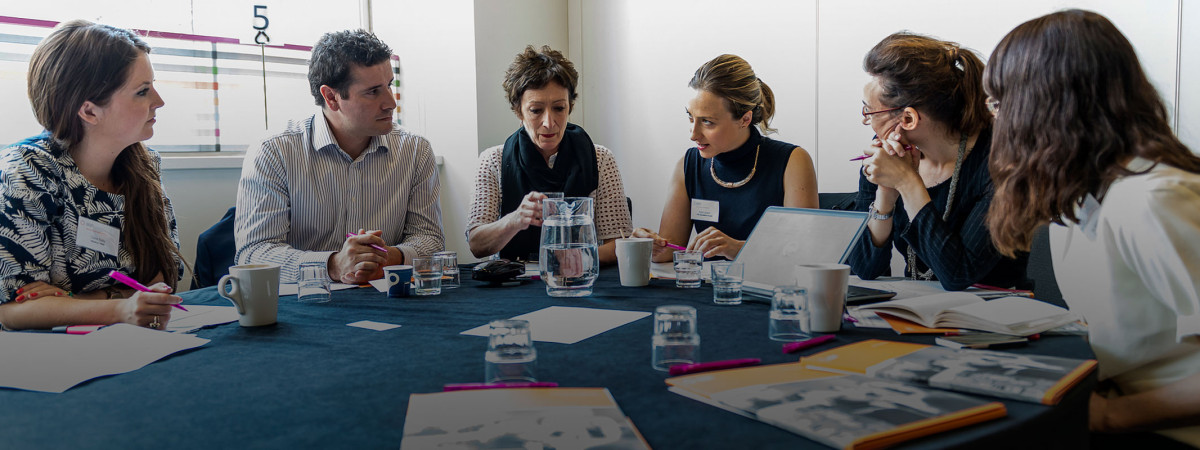
Photo of Spring Forum participants by Vincent Breton
Authors
-
Stéphanie Leblanc
Former Associate Director, Communications and Marketing, BSR
As I stepped off the Eurostar in Paris last Friday following BSR’s final Spring Forum event in London, I couldn’t help but think that the past few weeks have been a turning point in this crucial year for climate action. As BSR President and CEO Aron Cramer wrote, the “tanker has turned,” and there is no doubt that business is now uniquely suited to act and lead on climate.
While catching our breath from the Business and Climate Summit, co-organized by BSR and 25 other international networks, we gathered our network in Paris to kick off—200 days before COP21—a series of events throughout Europe dedicated to corporate climate action. The Spring Forum Series 2015 aimed to spur collaboration and identify practical strategies to guide business on climate leadership before, during, and after COP21.
In Paris, Leipzig, and London, I was encouraged to see how well the business community and its stakeholders responded to the notion of climate-resilience wedges. Wedges are a series of actions that businesses and others can take to reduce emissions and build adaptive capacity. Along with translation and collaboration, the wedges approach is a pillar of BSR’s climate action agenda for the private sector.
At the Spring Forum events, participants explored the wedges that are unique to specific industries and those that are shared across sectors. For example, the agricultural sector should focus specifically on food waste, and all sectors need to develop energy efficiency and build climate-resilient supply chains (which U.S. Secretary of State John Kerry also mentioned in a video statement at the Business and Climate Summit).
At our London event, we focused on climate-resilient supply chains where we launched a report on the topic. Business representatives worked together to define their industry wedges, which they intend to bring back to their companies.
In London we also heard from Kering Sustainable Operations Director, Michael Beutler, about the company’s decision to open-source its environmental profit and loss account, a leading example of a robust corporate understanding of climate change.
In Paris, we focused on the unusual suspects of climate change: short-lived climate pollutants (SLCPs), which include methane, black carbon, and hydrofluorocarbons. Event speaker and former Co-Chair of the Climate and Clean Air Coalition, Bahijjahtu Abubakar, pointed out that working on SLCPs will “not only save millions of lives but also reduce global warming by as much as 0.6 degrees by 2050.”
In Leipzig, one day ahead of the International Transport Forum, we concentrated on solutions to curb the environmental footprint of the transport and logistics sector. Participants explored what it takes to be a smart freight leader, as the sector is responsible for six percent of global carbon dioxide emissions annually.
Business is vulnerable to climate impacts but is also crucial to achieving the solutions that we need in Paris at COP21 at the end of the year. As Mike Barry, director of Marks & Spencer’s Plan A, reminded us in London, “Business is the canary in the coalmine on climate.” From what I’ve seen in the past few weeks, the momentum of business leadership gives me hope for a positive outcome at December’s climate talks.
Let’s talk about how BSR can help you to transform your business and achieve your sustainability goals.